Russia unleashes anti-swastika purge ahead of WW2 parade
- Published
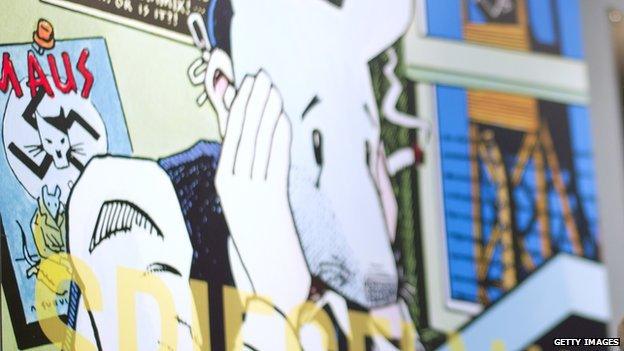
Maus, an anti-fascist cartoon character created by Pulitzer winner Art Spiegelman, has been removed from bookshops in Russia
You could be forgiven for thinking that Russian officials already had enough to worry about, as the Ukraine crisis threatens to flare up again, ties with the West are at their lowest point in years, and the rouble has suffered its biggest plunge in recent history.
But a new enemy has been found haunting Russia in the run-up to 70th anniversary celebrations of the Soviet victory over Nazi Germany: swastikas.
The authorities seem so determined to eliminate even the slightest sign of "Nazi propaganda" that even Art Spiegelman's Pulitzer-winning comic book about a Holocaust survivor, Maus, has disappeared from bookshops. Why? Well, it has a swastika on its cover as part of its anti-fascist message.
Toy soldiers seized
"We are removing everything to do with Nazi Germans," a member of staff at a popular bookshop told Ekho Moskvy radio.
Maus is certainly not the only target of the current anti-Nazi campaign.
A few weeks ago, investigators seized toy soldiers in SS uniforms from a central Moscow toy store and launched a criminal case over "inciting national, racial or religious hatred".
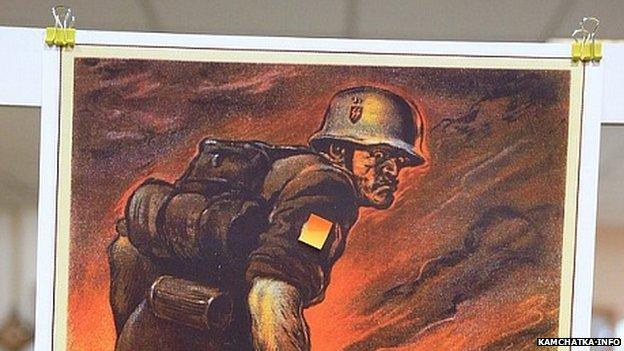
A post-it note was used to cover a swastika on a Soviet-era poster at an exhibition in Kamchatka
'Fighting myths'
The move caused outrage among some commentators, who accused prosecutors of fighting imaginary threats.
"In our Soviet childhood, in a country with a strict communist ideology, there was a whole lot of toy soldiers in fascist uniforms. And it didn't occur to any communist or Young Communist League ideologist that these soldiers promoted Nazism or insulted veterans," wrote Valeriy Yakov, editor-in-chief of the Novyye Izvestiya, external daily.
He said that prosecutors were busy fighting "myths" but turned a blind eye to the forum of European far-right parties in St Petersburg in March, where Nazi symbols were "openly promoted".
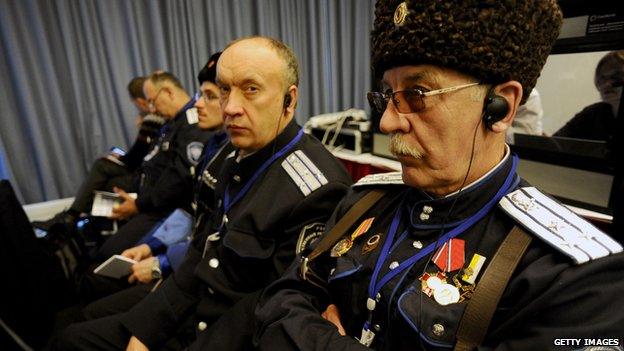
Far-right representatives from across Europe and Russia gathered for a pro-Kremlin conference in St Petersburg in March
'Luftwaffe sandals'
But such criticism does not seem to have deterred investigators and activists.
In a bizarre twist, a batch of women's sandals was recently seized from a shop in the city of Voronezh after activists complained the pattern on them resembled the Luftwaffe chevron.
Elsewhere, organisers of an exhibition featuring wartime Soviet posters in Petropavlovsk-Kamchatsky decided to cover up swastikas on German uniforms with stickers, external so as not to insult veterans, while a journalist in Saratov was fined for using a photo of a swastika as part of his anti-fascist collage.
"Fighting against symbols... it's what they do in a lunatic asylum," pro-Kremlin journalist Maxim Shevchenko told Ekho Moskvy.
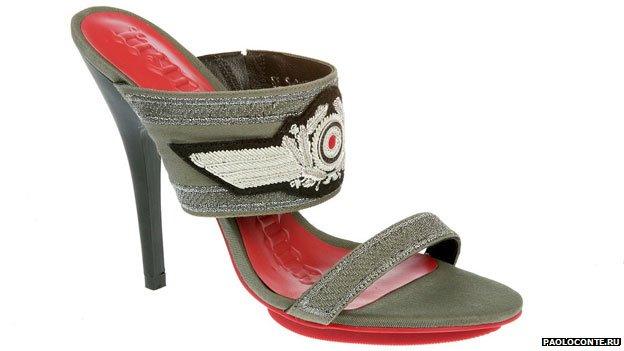
These shoes were pulled from the shelves because the emblem on them allegedly resembles Luftwaffe insignia
BBC Monitoring, external reports and analyses news from TV, radio, web and print media around the world. You can follow BBC Monitoring on Twitter , externaland Facebook, external.
- Published15 March 2015
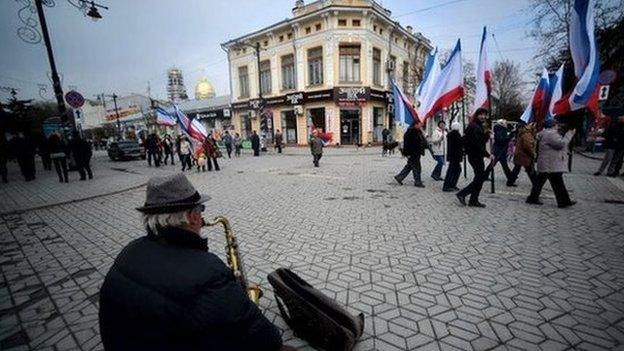
- Published18 March 2015
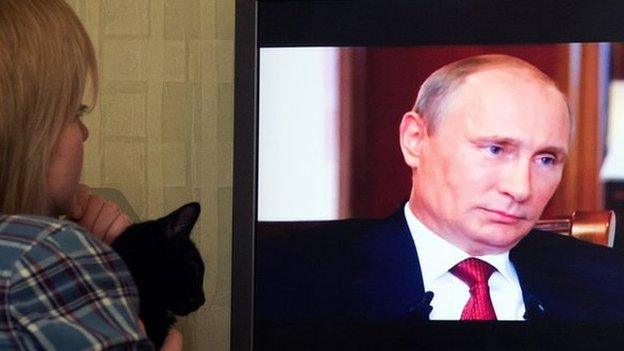
- Published6 March 2015